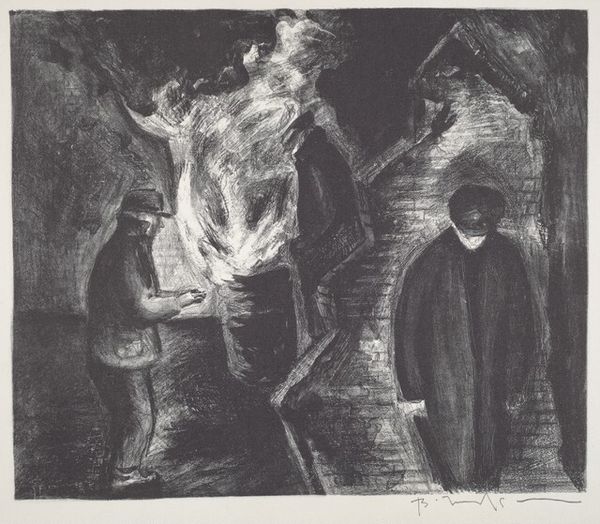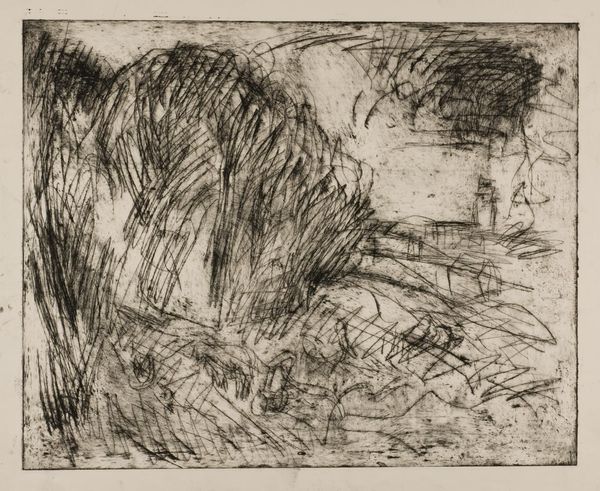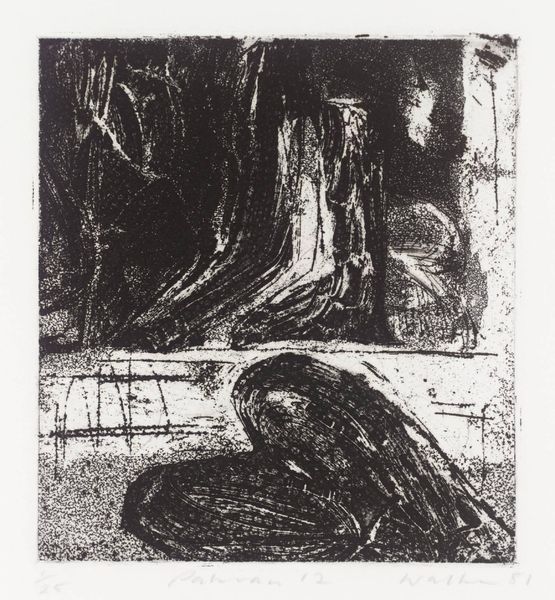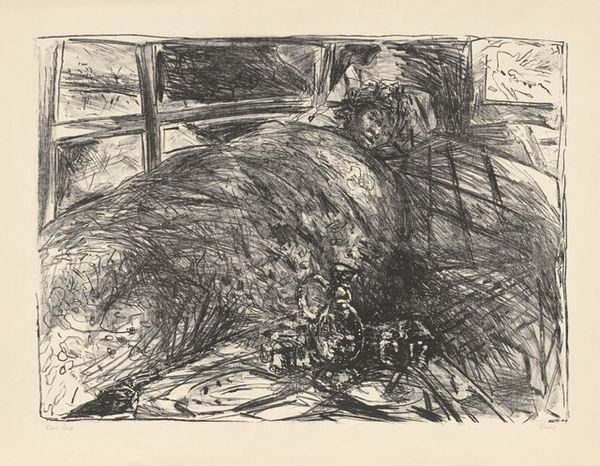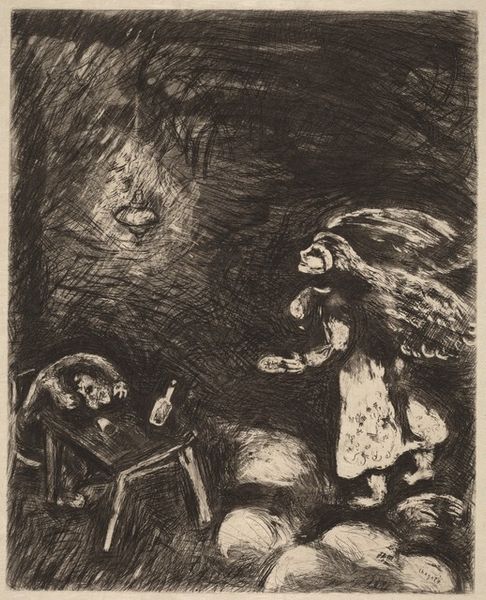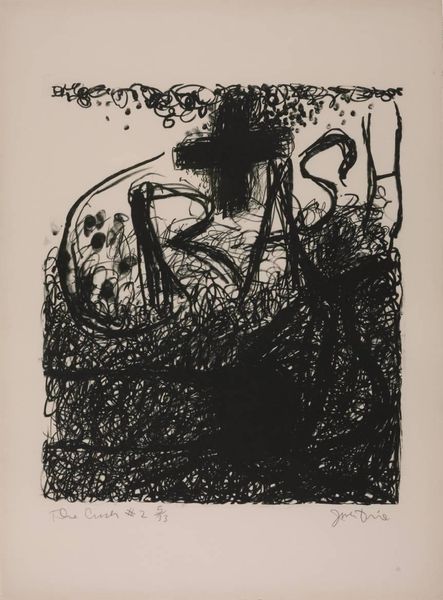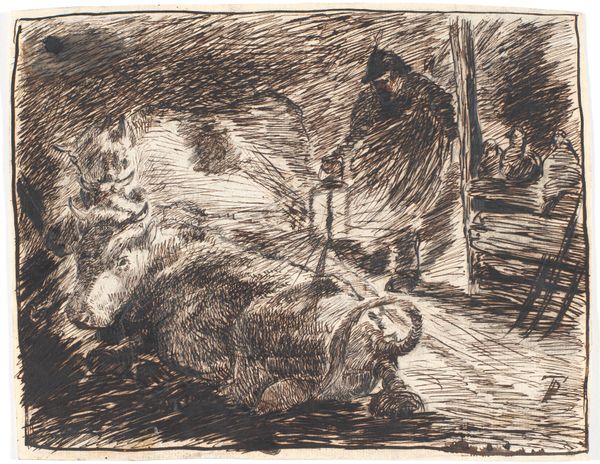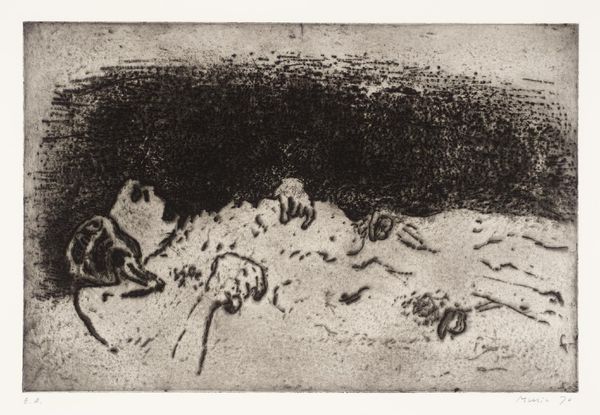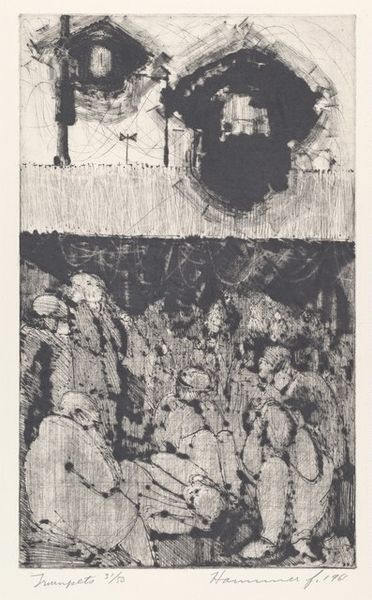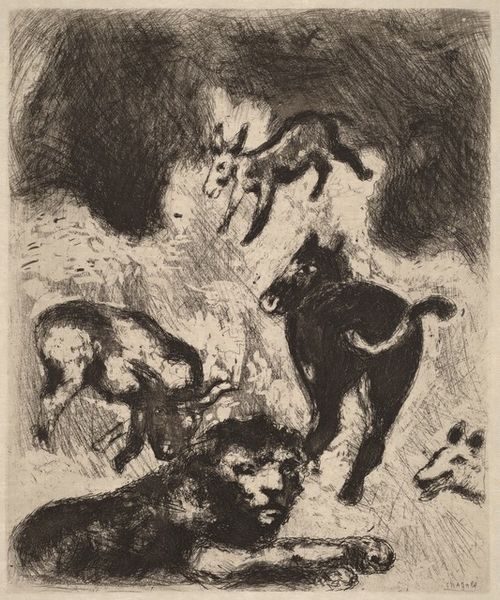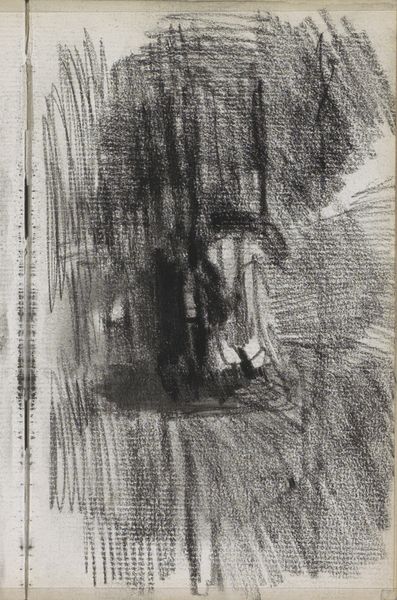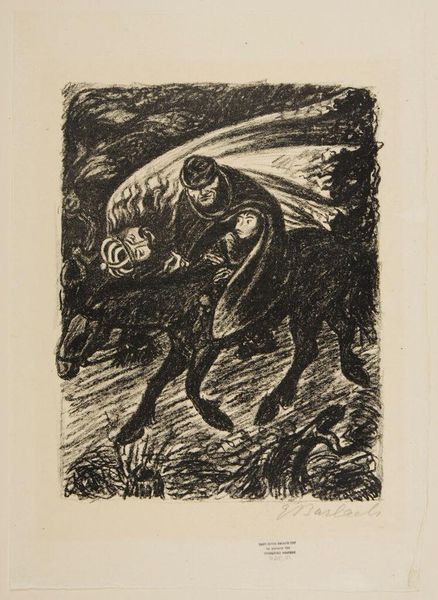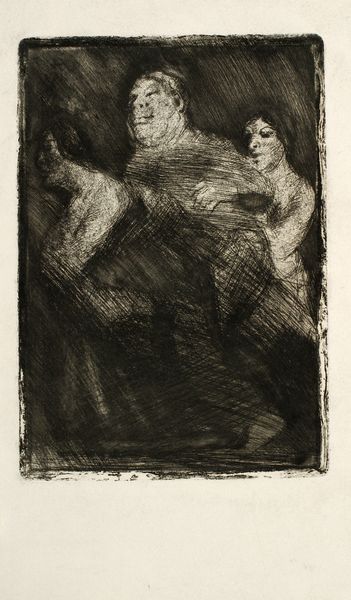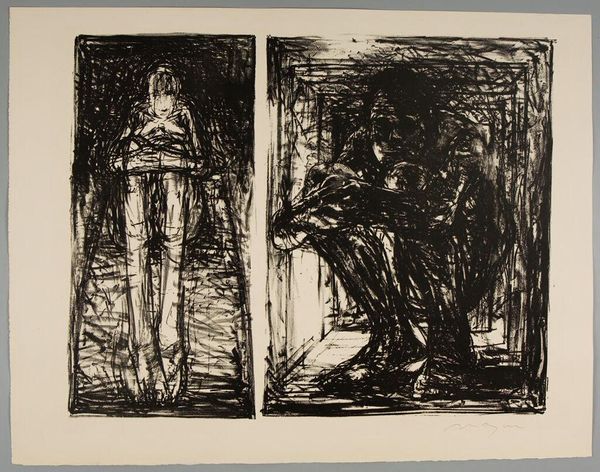
Dimensions: image: 489 x 610 mm
Copyright: © The estate of Arthur Boyd | CC-BY-NC-ND 4.0 DEED, Photo: Tate
Editor: This is Arthur Boyd's "St Francis Preaching Naked," now at the Tate. The figures are so raw, almost primal. What do you see in this piece beyond the obvious religious reference? Curator: The image is stark, isn't it? The raw, etched lines carry deep symbolic weight. Nakedness, in religious iconography, strips away earthly vanities, revealing a truth. Boyd seems to be exploring the psychological exposure inherent in St. Francis's devotion. Does that resonate with you? Editor: It does. It's like the artist is using the visual language to explore vulnerability. Curator: Exactly! Consider the animalistic presence looming. Is it a threat or a protector? Boyd uses such powerful symbols to ask profound questions about faith and being. Editor: I never thought about the animal as a protector, but it definitely changes my view of the piece. Thanks!
Comments
tate 10 months ago
⋮
http://www.tate.org.uk/art/artworks/boyd-st-francis-preaching-naked-p06046
Join the conversation
Join millions of artists and users on Artera today and experience the ultimate creative platform.
tate 10 months ago
⋮
Arthur Boyd was born in Murrumbeena, then just outside Melbourne, into a family of artists. He became part of the Australian art scene, during the 'Angry Decade' of 1937-47, so called for its focus on the agonies of war that dominated the period. Influenced by Bosch, Breugel and Rembrandt, Boyd's highly personalised, mature style combined Surrealism, Symbolism, Social Realism and Expressionism. His principle theme was the divine frenzy of love. Boyd travelled to London in 1959 and was included in the exhibition of Recent Australian Painting at the Whitechapel Art Gallery in 1961. He was given a retrospective at the same gallery in 1962. Boyd maintained homes in Britain and Australia, working and exhibiting in both countries. Gallery label, September 2004
